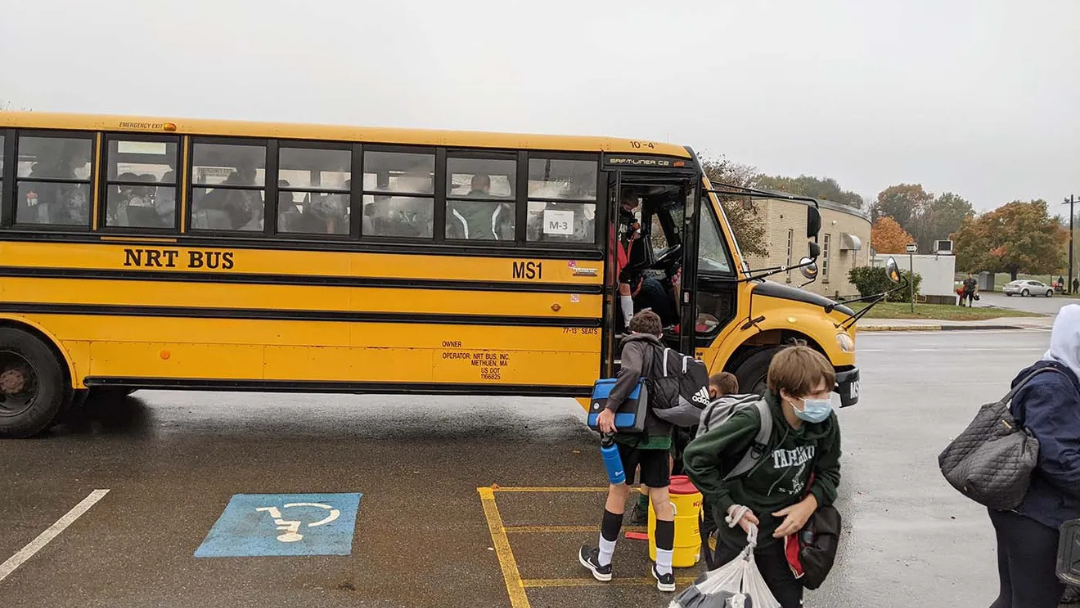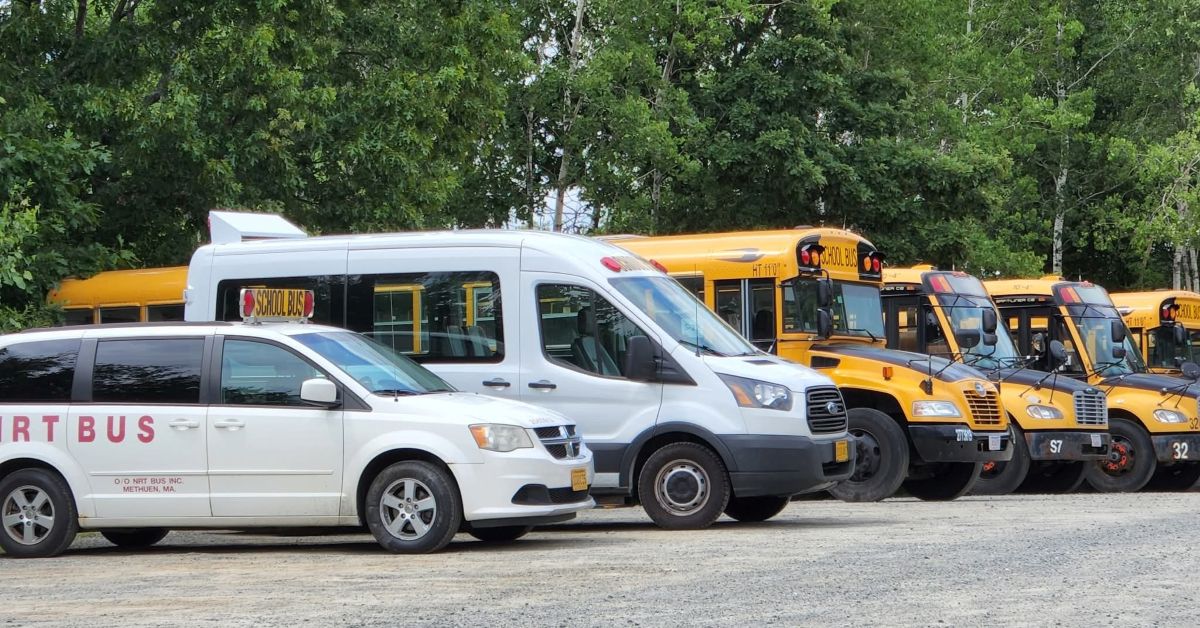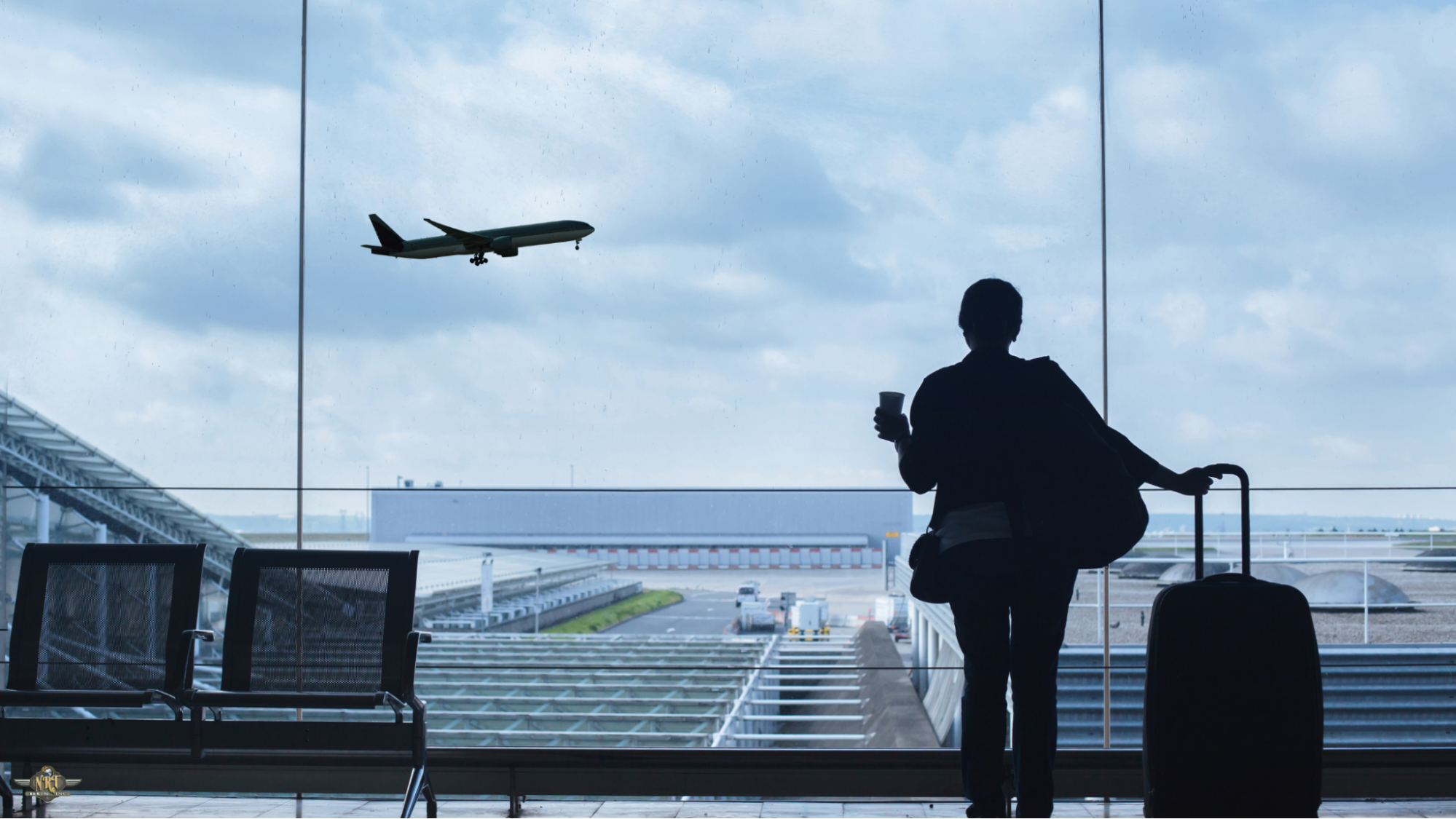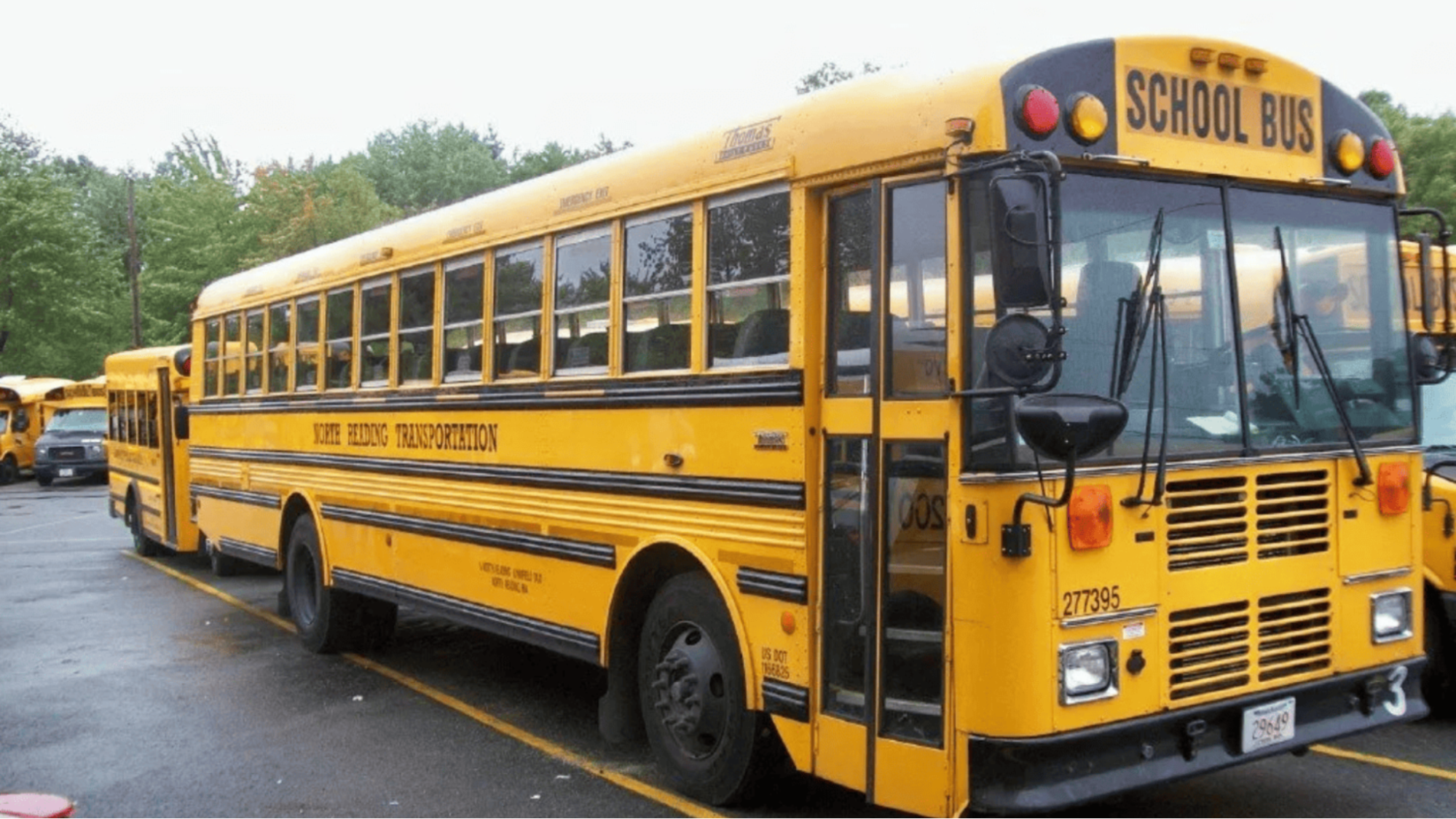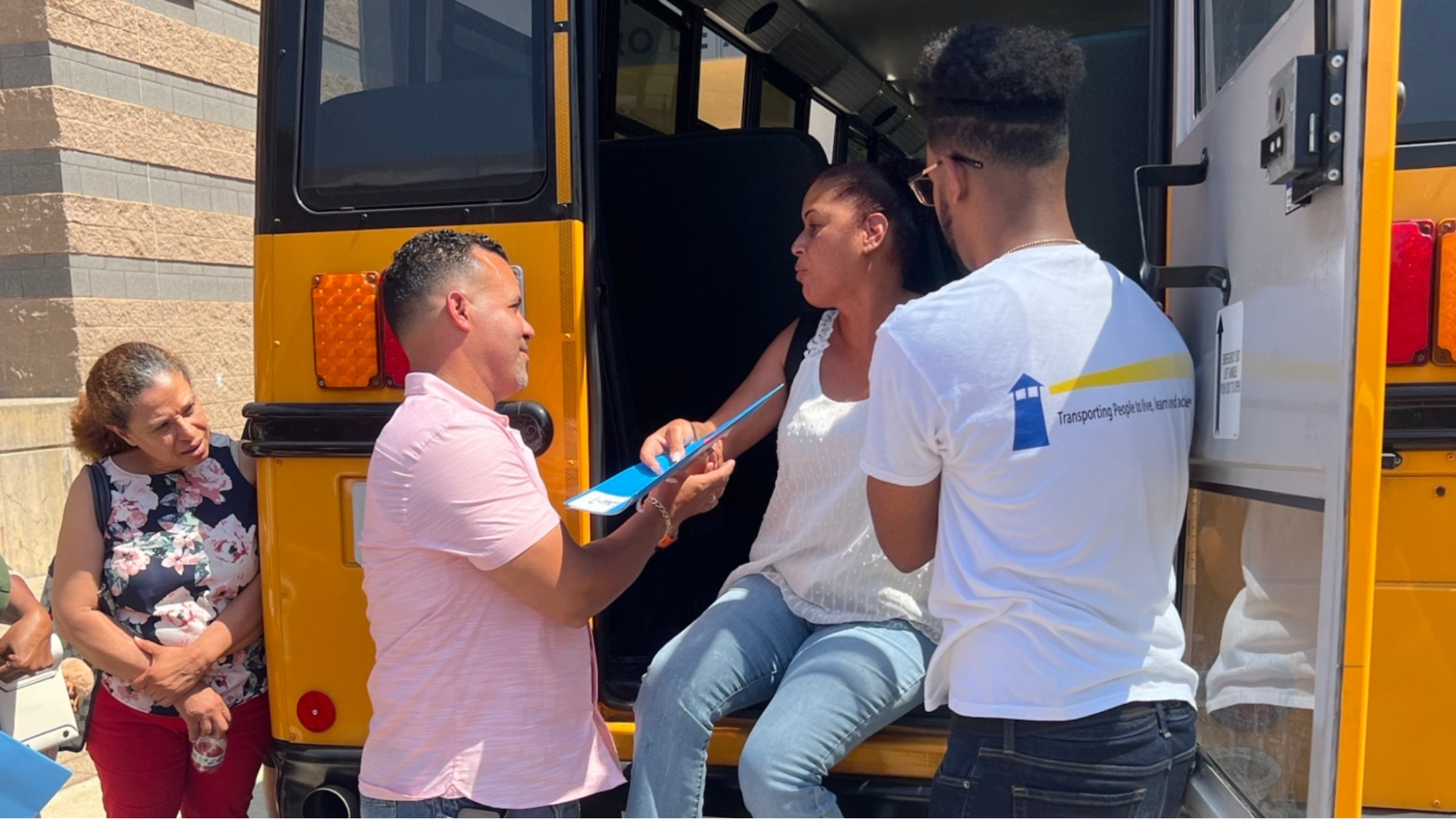Why Fall Transportation Requires Special Attention
Fall in Massachusetts brings crisp air, colorful leaves, and the start of a busy school year. But it also introduces unique transportation challenges: darker mornings, slippery roads from rain or early frost, and packed schedules with sports, field trips, and after-school programs.
For transportation coordinators, principals, and parents, planning ahead can make the difference between a smooth fall season and one filled with late buses or safety concerns. At NRT Bus, we’ve supported Massachusetts schools through decades of autumn transitions. Here are the top fall school transportation tips Massachusetts districts should prioritize this year.
Adjust Schedules for Shorter Days
By late October, daylight hours shrink noticeably. This impacts bus schedules and student safety.
- Ensure bus stops are well-lit or move them to safer locations if darkness poses a risk.
- Train drivers to be extra cautious with students crossing streets in low visibility.
- Communicate to parents that younger students should wear bright clothing or reflective gear at early morning stops.
Many districts start adjusting bus schedules in late August, and our Back-to-School Transportation Readiness Checklist is a great foundation for those early preparations.
Prepare for New England Weather Swings
Massachusetts fall weather is unpredictable: 80° in September, frost by October, and even early snow in November. To stay prepared, transportation teams should monitor the Massachusetts Department of Transportation’s roadway and weather alerts when planning routes.
- Conduct seasonal maintenance checks on heating systems, defrosters, and wipers.
- Stock buses with ice scrapers and sand for unexpected conditions.
- Develop contingency plans for delays or closures due to storms.
Manage Sports and Extracurricular Travel
Fall sports—football, soccer, cross country—mean evening games, weekend tournaments, and extra transportation needs.
- Schedule buses early to avoid conflicts with daily routes.
- Factor in night driving conditions for later returns.
- Use larger motorcoaches with undercarriage storage when transporting equipment.
Fall also means more evening sports trips. Our recent post on late-summer sports travel logistics has tips that apply equally to football games, cross-country meets, and weekend tournaments.
Strengthen Communication with Families
Parents need to know about schedule changes, weather delays, and after-school trip details. Clear communication reduces stress for families, and resources like the National Association for Pupil Transportation’s guidelines offer proven strategies districts can adopt.
- Use automated messaging systems (text/email apps).
- Post updates on school websites or parent portals.
- Encourage parents to download district-approved alert apps.
Safety Training for Students and Staff
A change in season is a perfect time to refresh safety procedures:
- Hold bus evacuation drills before the first frost.
- Review safe crossing procedures at bus stops.
- Train new staff on fall-specific risks like wet leaves on roads or early sunsets.
Small refreshers now prevent bigger problems later.
Prepare for Field Trips and Seasonal Events
Fall is also the peak season for field trips—apple orchards, museums, and science centers. These add complexity beyond daily routes.
- Reserve buses early for popular October dates.
- Build in extra travel time for leaf-peeping traffic in tourist-heavy regions.
- Confirm venue access for large buses in rural or historic areas.
Build in Backup Plans
No matter how well you plan, fall brings surprises—construction detours, illness-related driver shortages, or sudden storms.
- Identify alternate routes in advance.
- Keep standby drivers available during peak weeks.
- Share backup procedures with staff and families so everyone knows what to expect.
Final Thoughts
Fall may be one of the busiest seasons for Massachusetts schools, but with the right planning, it can also be one of the smoothest. By adjusting schedules for shorter days, preparing for unpredictable weather, coordinating extracurricular travel, and strengthening communication, districts can keep students safe and families confident.
At NRT Bus, we know that transportation readiness means more than just buses—it’s about trust, safety, and dependability. Whether you’re planning daily routes or seasonal field trips, our team has the local expertise to make every ride safe and efficient.
Ready to simplify your district’s fall transportation planning? Contact NRT Bus today to schedule safe, reliable buses for your students.

